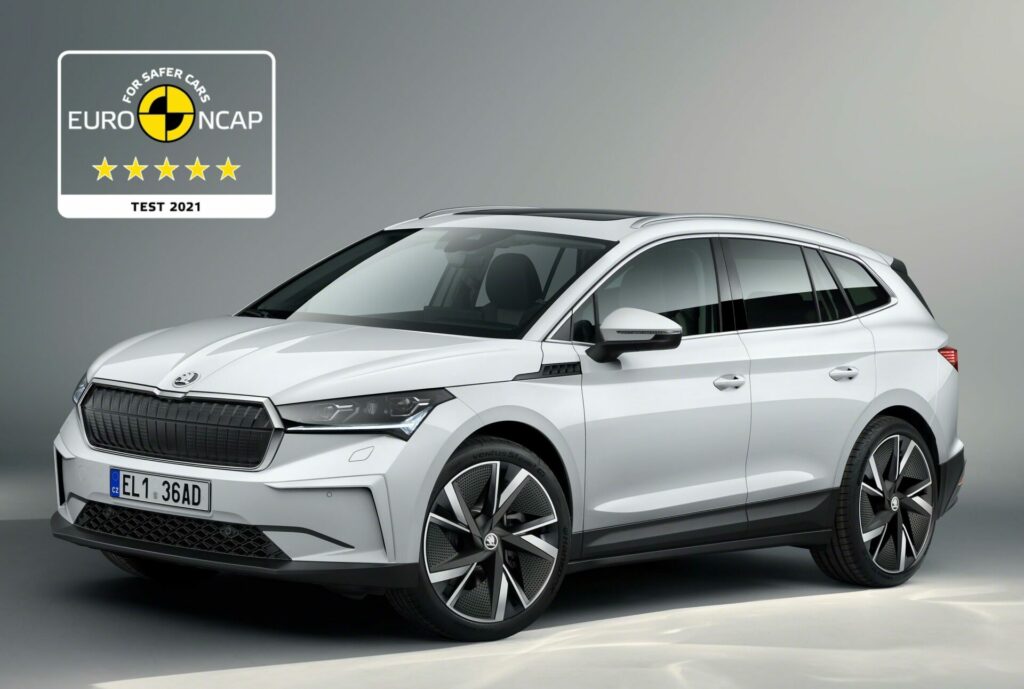The new ŠKODA ENYAQ iV electric SUV has achieved the highest classification of five stars in tests conducted by the independent European New Car Assessment Programme (Euro NCAP).
It ranks among the safest vehicles currently available with a total of 86 per cent of the possible points. In addition, the ENYAQ iV achieved the best result ever in the Euro NCAP test for occupant protection, with 94 per cent for adult passengers and 89 per cent for children.
ŠKODA’s first model based on the Volkswagen Group’s Modular Electrification Toolkit, continues the string of top scores for ŠKODA vehicles in the crash safety reference test, even with the now stricter assessment criteria. ŠKODA’s bestseller, the OCTAVIA, the compact model SCALA and the SUV models KODIAQ, KAROQ and KAMIQ, among others, have all been awarded the five-star rating.
Nine airbags
The ENYAQ iV comes with up to nine airbags, including a central airbag between the front seats, and comprehensive Proactive Occupant Protection. Numerous state-of-the-art assistance systems alert the driver to potential collisions in many situations and even actively help to prevent them or minimise the consequences.
These include Front Assist with predictive pedestrian and cyclist protection, Side Assist including Rear Traffic Alert, as well as Collision Avoidance Assist, Turn Assist and Exit Warning. Travel Assist actively supports the driver in longitudinally and laterally controlling the vehicle and, along with Adaptive Cruise Control (ACC), also includes Adaptive Lane Assist with roadworks recognition, Traffic Jam Assist and Emergency Assist.
A head-up display, in which ŠKODA has incorporated augmented reality for the first time, and full LED matrix headlights are available as options for the ENYAQ iV.
Crash tests
The European New Car Assessment Programme (Euro NCAP) is a scheme founded in 1997 by transport ministries, automobile clubs, insurance associations and research institutes from eight European countries. The consortium is based in the Belgian city of Leuven.
It conducts crash tests on current vehicle models and evaluates their active and passive safety. In recent years, the tests have continuously been made more stringent and now include various collision scenarios. While initially only the results of crash tests were evaluated, the ratings of active safety systems, as well as driver assistance systems, now have a greater weighting in the overall evaluation.

